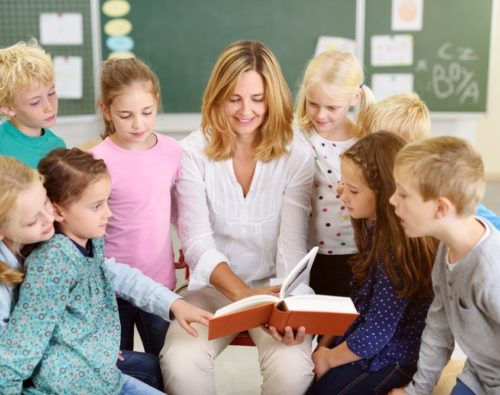Impact of Nursery Rhymes for Child Development
- Vidhyashram Jodhpur

- Jul 3, 2021
- 3 min read

Rhymes Develop Language and Speech in Kids
The rhyming words and rhythm of the song help develop an ear for language among kids from an early age onwards. Phonemic awareness is one of the most important developmental skills that kids need to learn. To put it in simple words, it is the ability to focus and identify individual sounds in spoken words. And nursery rhymes help children do that – in a fun and musical way!
As kids start reading they have to interpret the phonetic sounds created by words in their written format. Understanding how a letter sounds in the text is crucial in the initial stages of reading. And for that kids need to learn to interpret sounds and their meaning. Nursery rhymes have a simple and short format so that kids can learn new words and their sounds before they start their reading journey. This holds even when kids start with their ‘baby talk’ and babble out a few words.
Developmental Milestones Achieved With Nursery Rhymes
Vidhyashram International School, the top schools of Jodhpur knows the importance of nursery rhymes which are :
Speech development and clarity
The repeated and simple words in a nursery rhyme can help kids start their speech development practice. Kids learn a lot of new words which they otherwise would not have used in their daily communication.
Take the example of the rhyme “Jack and Jill”. Words like “fetch” and “crown” are new to kids which they might not have come across unless they start reading pure literature at an early age. This also helps in improving their vocabulary which is known to be a great skill to inherit!
Emotional development
As kids grow older they are taught to enact the rhyme with hand gestures and facial expressions. This helps children understand emotions better as they are acting them out as they hear the nursery rhyme. This lays a strong foundation for emotional development.

Differentiate between different sounds
Each letter has its own sound which is different from the other. Some letters like ‘a’ 'e' ‘i' 'o' ‘u’ produce different sounds in different words. Rhymes help kids identify the difference between these sounds which help them later when they learn to read texts.
Build memory and retention power
You still remember all the rhymes which you heard decades ago! Ever wondered why?
The repeated words in a rhyme are not there because the lyricist couldn’t think of other words! It is deliberately put so that kids learn new words and store them in their memory. Listening to ‘Twinkle twinkle’ kids would remember the word twinkle and what it signifies – twinkling of the star. This builds their memory and strengthens their retention power.
Mouth and tongue muscle movement
Trying to recite nursery rhymes exercises jaw muscles and initiates tongue movement. This also helps kids in speech clarity. As they repeat the rhyme to memorize it, they improve their speech and muscle movement of the mouth giving way to clear recitation of the rhyme.
Fine motor development
As kids use their hands, body, and facial muscles to act the nursery rhymes, they deeply refine their fine motor skills. Small muscle movements play an important role in the early development years of the child. Even the opening and closing of fingers during “twinkle twinkle little star” help improve these movements.
Coordinating hands and leg movements with the nursery rhyme rhythm is also a part of their motor and cognitive development. You can see the results a few years later when your child takes part in dance and drama competitions!
Understanding storyline
“Mary had a little lamb” is a sweet story in the form of a rhyme. This, and many other similar rhymes teach children the parts of a story – a beginning, a middle, and an end. This helps them understand pattern and sequencing and how to build a storyline.
Well, Now you Know
Nursery rhymes are the first ones to teach our kids that the wheels of the bus go round and round and lying gets you caught instantly just like it did to Johny. Morals, actions, storytelling, vocabulary…the benefits of nursery rhymes are infinite! Even nursery admissions evaluate children’s development stage based on nursery rhymes!









Comments